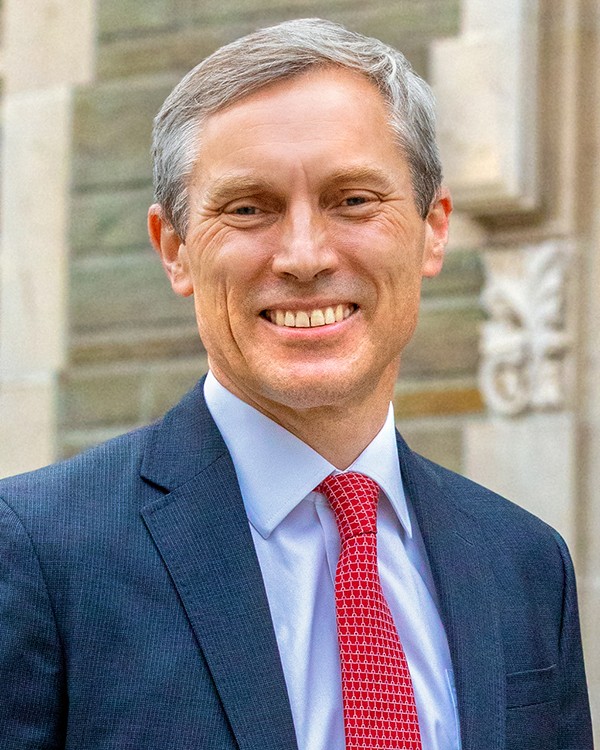Colvin reappointed dean of ILR School
By Susan Kelley, Cornell Chronicle
Alexander Colvin, Ph.D. ’99, has been appointed to a second term as the Kenneth F. Kahn ’69 Dean of the ILR School, Provost Michael I. Kotlikoff announced Sept. 18.
The Cornell Board of Trustees’ Executive Committee voted Sept. 14 to approve a new five-year term, effective July 1, 2024. Colvin’s tenure as dean began July 1, 2019, after he had served as interim dean for nine months. He is also the Martin F. Scheinman ’76, M.S. ’76, Professor of Conflict Resolution.
“Alex has demonstrated thoughtful judgement, agility and wisdom, and a talent for addressing issues with innovation and collaboration during his time as dean,” Kotlikoff said. “I am delighted he will continue in this role and further enhance the standing of the ILR School.”
Founded in 1945 as the New York State School of Industrial and Labor Relations, the ILR School is home to 62 tenure-track faculty members, 48 outreach faculty members and approximately 1,000 undergraduates and 200 graduate students across five departments. It offers five degree programs (undergraduate, graduate and professional) in Ithaca, Buffalo and New York City. The ILR School has more full-time faculty involved in teaching and research in work and employment disciplines than any other educational institution of its kind.
There are enormous changes occurring in the world of work, which the ILR School will continue to address in its academic and research programs, Colvin said.
“Key issues that are affecting our society and economy include: the changing nature of careers, the expansion of remote work, the rise of artificial intelligence, globalization, the increase in gig work, the resurgence of labor activism, the challenge of building diverse and inclusive organizations, the #MeToo movement and the need to address sexual harassment at work, and many others,” he said. “The ILR School’s mission is to be the nation’s leading academic unit studying work, labor and employment. As dean, my top priority will continue to be ensuring that Cornell maintains its leading position in the academic study of work.”
During Colvin’s tenure, the ILR School hired 25 new faculty members, representing 40% of the total faculty at the school. He also led the launch of the Department of Global Labor and Work, combining the strengths of the former departments of Labor Relations, Law and History and of International and Comparative Labor.
Other notable accomplishments during Colvin’s first term include:
- the implementation of a major revision to the undergraduate bachelor of science in ILR curriculum, including new courses in diversity, data science, and international and global labor;
- the launch of a new master’s of science degree concentration in labor research and policy;
- the expansion of outreach activities, supported by new funding from New York state, including a new Climate Jobs Institute and the Criminal Justice and Employment Initiative; and
- more philanthropic support for academic activities and programs, including increased scholarships, new endowed chairs, and the Future of Work Fellowship Program, which supports postdoctoral researchers and doctoral students working with ILR faculty.
Colvin’s top priorities for the coming term include continuing an active faculty hiring program, as well as launching a major new applied research unit, the Center for Applied Research on Work.
Other priorities for the upcoming term are: expanding engaged learning programs for ILR students; improving facilities for academic programs; continued implementation of a new undergraduate curriculum and graduate concentrations; and development of new academic options for undergraduate students.
A scholar of employment dispute resolution, Colvin researches procedures in nonunion workplaces and the impact of the legal environment on organizations.
Prior to joining Cornell, he was a faculty member at Pennsylvania State University in the Department of Labor Studies and Industrial Relations from 1999 to 2008.
Colvin earned three degrees from the University of Toronto: a bachelor of science in astronomy and astrophysics in 1989, a juris doctorate in 1992 and a master’s in industrial relations in 1995. He earned a fourth degree – a Ph.D. in industrial and labor relations – from Cornell in 1999.
Media Contact
Get Cornell news delivered right to your inbox.
Subscribe

